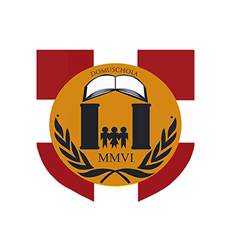
The Crucial Role of Parents in Their Child’s School Admissions Process
The school admissions phase is vital in every child’s academic path, and parents have a substantial role in ensuring success. From assessing choices like a baccalaureate IB diploma to offering regular support, they help lay the foundation for future learning. A proactive plan helps navigate hurdles, enabling a seamless transfer into the appropriate learning setting that stimulates academic and character development.
Role Of Parents In Their Children’s School Admissions:
1. Researching and Choosing the Right School:
Finding the ideal school demands meticulous research to satisfy academic goals, hobbies, and student satisfaction. Curriculum, teaching techniques, and learner-teacher ratios are some factors that parents should review. Touring schools, attending demo classes, and connecting with teaching staff can all share valuable insights.
Online reviews and testimonies from current and past student’s parents can provide helpful feedback. A thoughtful decision will help build a supportive atmosphere that boosts academic and personal growth. It can set the groundwork for a successful tomorrow for your little ones.
2. Eligibility Requirements for Admission:
Parents should meticulously review the criteria before enrolment, understanding past learning performance, entrance examinations, and age limitations. Some schools also factor in extracurricular achievements and behavioural records. Understanding these prerequisites streamlines the enrollment process and increases acceptance possibilities.
Schools might have unique preferences, like prioritising siblings of existing students during the admissions process. Parents should collect the essential documentation and verify their child meets academic standards. A planned approach improves the chances of a smooth enrolment process.
3. Ensuring Timely Adherence with Deadlines:
Meeting school admissions deadlines can help prevent any missed academic opportunities. Parents should prepare an outline that includes deadlines for application submissions, admission exams, interviews, and document verification.
Schools tend to release admission forms on their official website or through online admission portals. These forms may be available in digital formats or as physical copies for in-person submission.
Keep in mind that admissions forms are released months in advance. And hence, have deadlines that vary from institution to institution. Schools with rolling admissions tend to have more flexibility. However, others follow strict cut-off dates. Parents should recognize that late submissions can lead to dismissal or a waiting list.
Therefore, ensure to track release dates and submission deadlines. Also, keep an eye on requirements such as admission exams, interviews, and document verification. Remaining organized, setting frequent reminders, and routinely checking the school website for changes ensure the application process is stress-free and timely for parents and kids.
4. Submitting School Admission Applications:
The admissions process commences with filling out the admission forms carefully. Before submission, double-check names, academic history, and contact details to avoid mistakes. Schools usually provide guidelines or admission brochures. So, take a moment to review them while filling out and submitting the form.
You will definitely need documents like your child’s birth certificate, academic records, etc., The school guideline must have mentioned the details of what documents are required. So, ensure to keep everything in handy. The same guideline might also talk about the fee payment process. If not, speak with the school administration about the same.
Reputed schools now have online application platforms, which make submissions more straightforward. It is essential to preserve copies of all papers and follow submission dates. A well-prepared application for reputed schools in Manila showcases your kid’s abilities, promoting the chances of acceptance into your preferred institute.
5. Financial Readiness for School Journey:
Tuition, uniforms, books, and travel costs add up, making financial preparation highly valuable. Parents should consider cost structures, scholarship choices, and financial assistance opportunities. Budgeting can help to minimise unanticipated expenses and protect the child’s monetary stability during the school year.
While some institutes offer systematic payment options to lower the stress, others expect an upfront deposit. Recognising the monetary obligation in advance enables families to make educated decisions and ensure the finest educational experience possible while avoiding redundant financial burdens.
6. Catering Special Educational Needs (SEN):
Supporting students with special needs requires finding a school that provides personalised learning experiences, experienced educators, and inclusive policies. Parents should check that the institute offers individualised education plans, adaptive technology and specialised support personnel.
Consistent communication with teachers ensures your child gets adequate support for steady growth. A supportive setting that celebrates inclusivity and offers personalised education can help students succeed. Parents can help their kids thrive in a caring and accepting educational environment by emphasising diversity.
7. Aligning School Values with Family Beliefs:
A chosen institute for school admissions should have standards and philosophy consistent with your family’s social, ethical, and educational beliefs to support a harmonious learning environment. Parents should meticulously assess discipline practices, beliefs and teachings, inclusivity, and the school atmosphere beforehand.
Schools that emphasise respect, honesty, and holistic growth shape well-rounded students. Participating in school orientations and talking to instructors can provide insight into their teaching approaches. Balancing parental values with school ethos promotes a child’s moral and intellectual development.
8. Supporting Kids in a New School Setting:
Switching to a new school can seem intimidating for youngsters, making parental assistance vital. Encouraging honest talks about expectations, scheduling early visits, and exposing them to future classmates can help alleviate worry. Parents could boost confidence by emphasising benefits like new connections and learning possibilities.
Understanding their concerns and providing comfort alleviates their anxiety. Encouraging engagement in extracurricular interests also aids their integration. A supportive attitude, patience, and candid dialogue contribute to a smooth transition, ensuring the child’s new school experience is joyful.
Conclusion:
Parents have a significant role in influencing their kid’s educational journey by offering consistent motivation. Their engagement enables informed judgements and a smooth admissions process. Beyond obtaining a preschool Metro Manila admission, parental involvement promotes confidence, endurance, and a lifetime love of learning. It can establish the groundwork for a successful and rewarding academic career.

